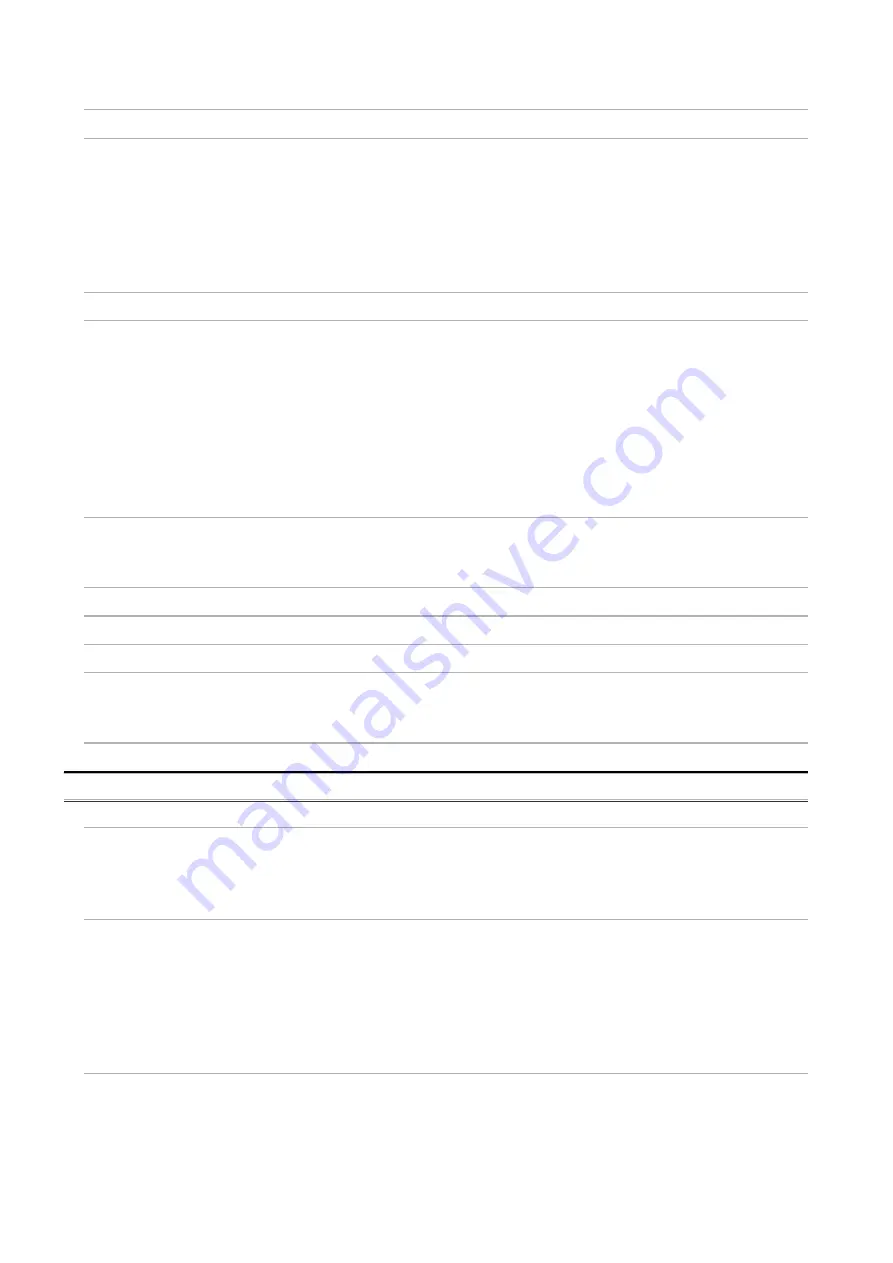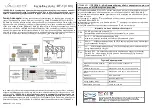
A
- 28
5.2
FUNCTION LIST
5.3
The System Switching Function
5.3.1
System Switching Method
5.3.2
System Switching Execution Timing
5.3.3
System Switching Execution Possibility
5.3.4
Both Systems Operations After System Switching
5.3.5
Special Relays/Registers For System Switching
5.3.6
System Switching Precautions
5.4
Operation Mode Change Function
5.5
Tracking Function
5.5.1
Tracking Function Overview
5.5.2
Tracking Execution Procedure
5.5.3
Tracking Data
5.5.4
Tracking Data Settings
5.5.5
Tracking Block And Tracking Trigger
5.5.6
Tracking Execution
5.5.7
Tracking Mode
5.5.8
Device Data Used By The New Control System
5.6
Online Program Change for Redundancy
5.6.1
Writing to the CPU Module in STOP Status
5.6.2
Program Change While CPU is Running
5.7
Memory Copy From Control System To Standby System
5.8
Online Module Change (Hot Swapping)
5.9
Network Module Redundant Group Settings
5.10 Redundant CPU Functions Restricted in Redundant System
5.10.1 Enforced ON/OFF of external I/O
5.10.2 Remote Operation for Redundant System
5.11 Access to Module Mounted on Extension Base Unit
CHAPTER6 REDUNDANT SYSTEM NETWORKS
6.1
Communication with GX Developer and PX Developer
6.1.1
Communication Methods with GX Developer
6.1.2
Confirming the Connection Target on GX Developer
6.1.3
Cautions on Access from GX Developer and PX Developer
6.2
Redundant System Network Overview
6.2.1
CC-Link IE controller network or MELSECNET/H PLC to PLC network
6.2.2
MELSECNET/H Remote I/O network
6.2.3
Ethernet
6.2.4
CC-Link
6.2.5
Serial Communication Modules
6.2.6
PROFIBUS-DP
6.3
Communication between the Both Systems CPU Module and GOTs
6.3.1
When Connecting GOTs to a MELSECNET/H Remote I/O network
6.3.2
When Connecting GOTs to CC-Link
6.3.3
Communication when the GOT is Connected to CC-Link IE controller network, MELSECNET/H or
MELSECNET/10 PLC to PLC Network















































